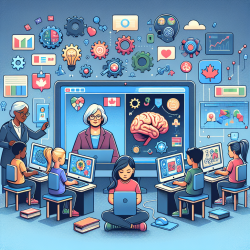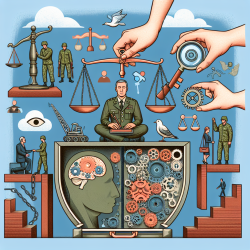Recent research highlights the potential benefits of therapeutic horseback riding (THR) for children with Autism Spectrum Disorder (ASD) and Intellectual Disability (ID). The study, titled Effects of Therapeutic Horseback Riding on Cognition and Language in Children With Autism Spectrum Disorder or Intellectual Disability: A Preliminary Study, offers valuable insights for practitioners seeking to enhance their therapeutic interventions.
Conducted by Kwon et al. (2019), this study involved 29 children diagnosed with ASD or ID, divided into a THR group and a control group. Over eight weeks, the THR group participated in weekly 30-minute horseback riding sessions in addition to conventional therapy, while the control group received only conventional therapy. The study aimed to assess improvements in language and cognitive functions using standardized tests such as the Receptive and Expressive Vocabulary Test (REVT) and the Kaufman Assessment Battery for Children (K-ABC).
The results were promising:
- The THR group showed significant improvements in receptive and expressive language skills, as well as cognitive functions, compared to their baseline measurements.
- While the control group also showed improvements, the THR group demonstrated statistically significant gains in more areas.
For practitioners, these findings suggest several actionable steps:
1. Incorporate THR into Existing Therapy Programs
Given the positive outcomes observed in the study, integrating THR into existing therapy programs could enhance language and cognitive development in children with ASD and ID. Practitioners should consider partnering with certified THR providers to offer this complementary therapy.
2. Monitor and Document Progress
Consistent monitoring and documentation of a child’s progress during THR sessions can provide valuable data to tailor individualized therapy plans. This approach ensures that each child receives the most effective interventions based on their unique needs.
3. Encourage Further Research
While this preliminary study provides encouraging results, larger-scale studies with longer follow-up periods are necessary to fully understand the long-term benefits of THR. Practitioners are encouraged to participate in or support further research to validate these findings and explore the underlying mechanisms of THR.
To read the original research paper, please follow this link: Effects of Therapeutic Horseback Riding on Cognition and Language in Children With Autism Spectrum Disorder or Intellectual Disability: A Preliminary Study.










